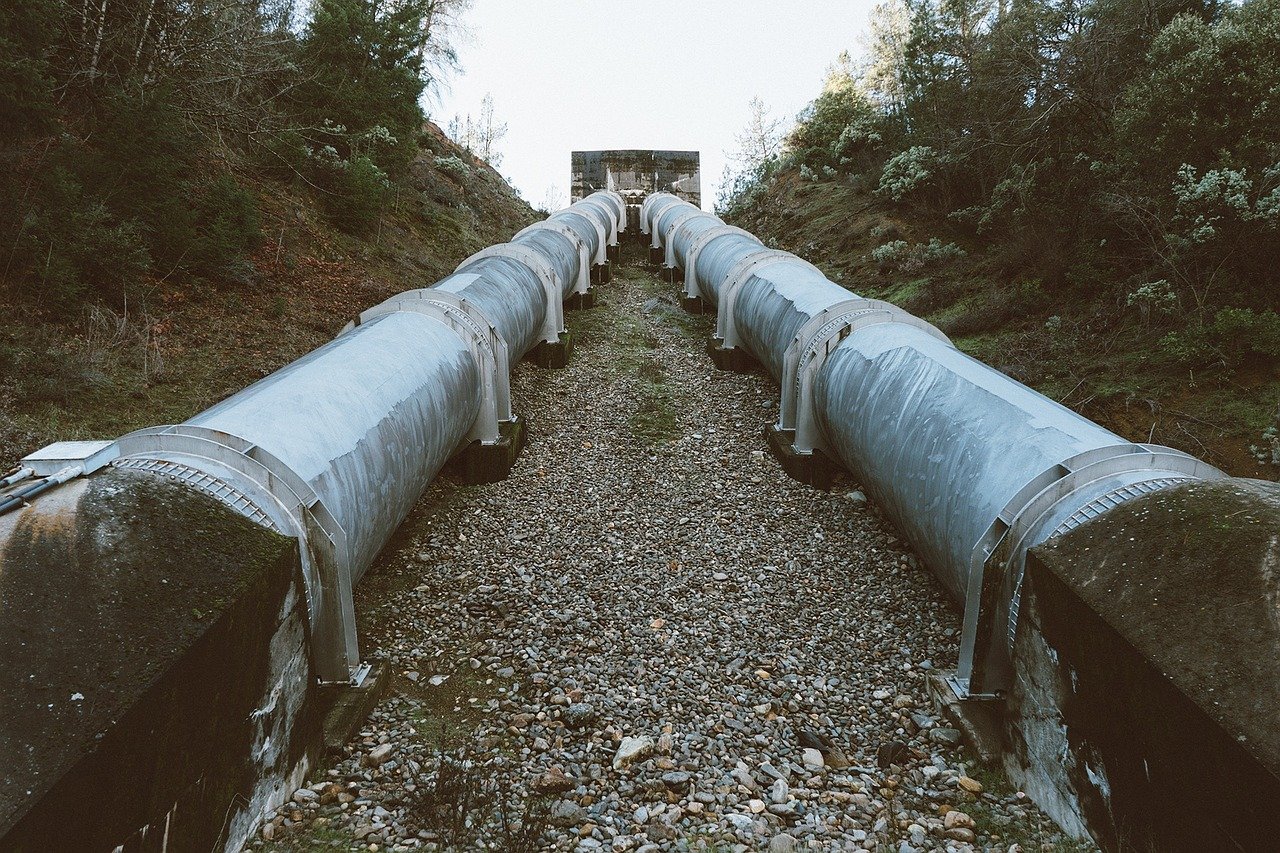Our Environment: To Fear or Not to Fear?
Throughout the experiences that I have had in the environmental sector, whether through jobs, internships, learning, or interacting with my peers, I have continually noticed that where there is a lack of understanding or knowledge, there is often a lack of passion or concern. Reflecting on this idea, I applied this concept to myself and I had to agree – when I don’t realize how an issue or topic relates to myself, a task at hand, or the well-being of those around me, I tend to not care as much. This inspired me to then put myself outside of my environmental passions and imagine what my opinions would be if I instead grew up learning in another field of study, such as finance, communications, or even business for example.

By Brittnei Miller
April 5, 2014
 Throughout the experiences that I have had in the environmental sector, whether through jobs, internships, learning, or interacting with my peers, I have continually noticed that where there is a lack of understanding or knowledge, there is often a lack of passion or concern. Reflecting on this idea, I applied this concept to myself and I had to agree – when I don’t realize how an issue or topic relates to myself, a task at hand, or the well-being of those around me, I tend to not care as much. This inspired me to then put myself outside of my environmental passions and imagine what my opinions would be if I instead grew up learning in another field of study, such as finance, communications, or even business for example.
Throughout the experiences that I have had in the environmental sector, whether through jobs, internships, learning, or interacting with my peers, I have continually noticed that where there is a lack of understanding or knowledge, there is often a lack of passion or concern. Reflecting on this idea, I applied this concept to myself and I had to agree – when I don’t realize how an issue or topic relates to myself, a task at hand, or the well-being of those around me, I tend to not care as much. This inspired me to then put myself outside of my environmental passions and imagine what my opinions would be if I instead grew up learning in another field of study, such as finance, communications, or even business for example.
While I believe I would still be interested in knowing what is going on environmentally, I know that I would not feel half as strongly as I do now about taking necessary actions to prevent global warming, preserve natural resources, stop degradation, and maintain the important relationships the various forms of biology have within their ecosystems. With this in mind, I recently asked a group of my friends (who do not have the same passions or environmental experiences that I have) if they had any general questions about the environment. One of the replies I received both surprised me and confirmed my perceptions of the connection between a lack of knowledge and understanding with a lack of concern or passion.
“Is there any reason humans should fear the  environment?” I was asked. After thinking about this for a moment, many things came to mind that would have taken me a lot of time to explain. However, given the curious look I must have had on my face after hearing such a question, my friends changed the topic and we went about our day. A few days later, I found this question still lingering in my mind like a single white cloud in the blue sky. While any response to this question would be largely opinion based, the fact that someone outside of a consistent environmental mind-set had this thought suggests an answer of its own kind.
environment?” I was asked. After thinking about this for a moment, many things came to mind that would have taken me a lot of time to explain. However, given the curious look I must have had on my face after hearing such a question, my friends changed the topic and we went about our day. A few days later, I found this question still lingering in my mind like a single white cloud in the blue sky. While any response to this question would be largely opinion based, the fact that someone outside of a consistent environmental mind-set had this thought suggests an answer of its own kind.
One definition of fear is, “A feeling of agitation and anxiety caused by the presence or imminence of danger.” In this case, responding “yes,” that humans should fear the environment would agree that there is an inevitable danger provided in nature causing humans to feel agitated or scared. On the contrary, responding “no” would imply that humans have no reason to feel anxious towards the environment and that there is no inherent danger to be concerned of. However, in my opinion there is no definite “yes” or “no” answer to this question, but there might be a way to define for yourself whether or not it is the environment that you should fear.
What most people see on the news, in newspapers, magazines, or on the internet about the environment quite often has to do with natural disasters. It appears that more hurricanes, tsunamis, tornadoes, floods, droughts, forest or brush fires, and other environmentally created methods of devastation to humans are occurring more frequently and are seemingly out of our control. According to the United Nations Office for Disaster Risk Reduction (UNISDR), in 2000-2013, 1.7 trillion US dollars in damage was created globally by natural disasters, 2.9 billion people were affected in some way, and 1.2 million were killed. In my opinion, it is facts such as these, facts that are unarguably real which inspire fear within humans towards nature. However, we must realize that natural disasters are going to occur whether we fear them or not. What does not occur naturally is the rate at which they are happening as well as the force of many hurricanes and tsunamis that we have seen recently.
While the planet naturally goes through changes, consider this – carbon dioxide (CO2) , a primary greenhouse gas (GHG) has the capabilities to increase global warming rates worldwide and is accelerated by human actions such as the burning of fossil fuels for energy. CO2 is naturally present in the earth’s atmosphere, but since the Industrial Revolution (mid-1700’s to early 1800’s) its presence has been growing at rates that can jeopardize the efficient recycling of this GHG in our planet’s ecosystems. In addition, according to the United Nations, during 2011-2012, the Earth’s human population reached a staggering 7 billion, with an average population change of 80 million per year.
Now why is this important? Well, as more humans inhabit the planet there will naturally be an increasing need for energy which will result in the consistent and continual emission of CO2 (unless alternative methods are used). This increased energy demand takes a toll on the environment whether in the form of land degradation, reduced levels of natural resources, pollution, or increased rates of natural disasters due to global warming. If one thing is clear- it is that increased CO2 emissions by humans are recognizably capable of tampering with the earth’s natural processes. And by tampering with these processes, we can have a direct effect on the power and the rate at which natural disasters occur.
However, by having a better understanding of how global warming can potentially increase the power and frequency of natural disasters, perhaps we can also manage our “imminent” fear of the environment by making more sustainably-minded decisions. Of course, we cannot control the planet’s natural processes entirely, but we most definitely have the capabilities to control our own carbon emitting actions and as a result, our fear of more devastating natural disasters stemming from the GHG.
I believe that the more information we have, the better we will be able to understand how our human actions are impacting the environment. The better we understand how our actions impact the environment, the more opportunities we will have to choose from sustainable alternatives. By having the knowledge to choose from more sustainable alternatives, we will begin to increase the level of confidence we have in our actions and create a desire to continue learning instead of fearing our planet. In addition, by gaining a better knowledge of what human-caused factors can influence natural disasters, I believe we will be indirectly controlling our fears as well. Since the fear some might have comes from the anticipation of “imminent” danger, it would only make sense that in order to diminish that fear, the danger faced must also be diminished. Realizing this, if more human populations were aware of how their choices could be affecting the intensity of hurricanes, droughts, floods, and other natural disasters, I believe they would have an increased desire to reduce carbon emissions in order to prevent devastation to their lands caused by natural disasters.
For example, anthropogenic warming by the end of the 21st century will cause hurricanes to increase in frequency and potential damage per storm if warming rates are not slowed. In addition, the National Wildlife Federation states that there will be an increase in extremely dry periods and heavy rainfall events which are potentially caused by global warming. Knowing this, what if we break down the scary concept of global warming into more easily understood cause-and-effect relationships? By explaining how greenhouse gas emissions are directly related to the increased magnitude of natural disasters in certain regions, perhaps people will feel more of a direct connection towards the need to live sustainably in order to slow natural disaster rates (if not global warming entirely). I believe that if more people were to understand how a hurricane, drought, or tsunami in their region is a byproduct of global warming, most would feel a desire to reduce the likelihood of another natural disaster occurrence by living more sustainably. If small changes in understanding like this were initiated, I believe a greater degree of sustainable actions would be taken across the planet through the focus of preventing nat ural disasters, but having the effect of decreasing global warming. Either way, people will be more interested, motivated, and have a better understanding of why it is important that they make certain sustainable decisions.
ural disasters, but having the effect of decreasing global warming. Either way, people will be more interested, motivated, and have a better understanding of why it is important that they make certain sustainable decisions.
So, after doing some thinking to answer my friend’s question, my own reply would have been, no. It is not the environment we should fear, but our perceptions of our relationship with the environment based on what we do or do not know and the extent to which we care to know. What should be feared is a lack of desire to understand how our choices can influence nature and thus, the perceived “imminent” fear we often wrongly accuse the environment of inspiring within us.
Here at FirstCarbon Solutions (FCS), we may not know how to solve the entire global environmental picture at once, but we definitely know where to start. Together, through carbon reduction initiatives and data management, we can help connect the pieces of the global environmental puzzle while reducing the loss or damage to biology and ecosystems along the way. For more information, or to speak to one of our experts, click on the link below:
Related Articles
Environmental Impacts, Environmental Issues
By Adrienne Garcia on March 10, 2020
Environmental Impacts | Sustainability | Forests | Organization
By Kevin Bolland on December 23, 2019
Environmental Impacts | Environmental Assessments | CEQA | Environmental Planning | city planning
By Sharolyn Vettese on July 17, 2018
Environmental Issues | Sustainability | Environmental | Investments | Sustainability Reporting
Be a sustainability leader.
Our team supports you no matter where you are on your Sustainability Journey. Talk to us today to learn more.





